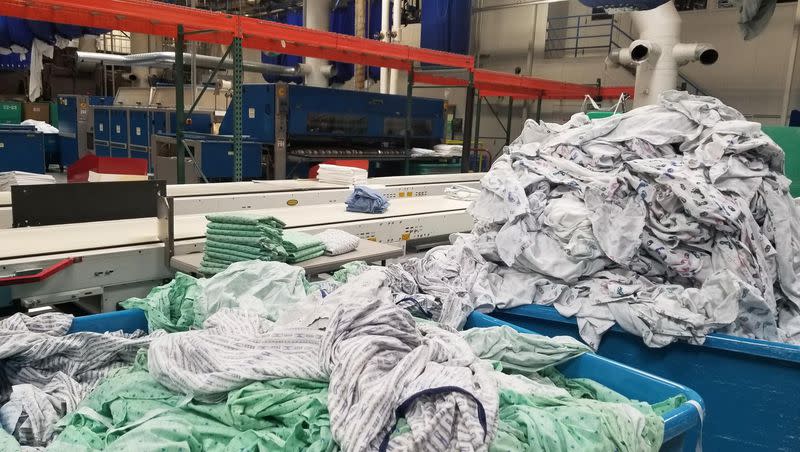Intermountain Health's new laundry machines help it save water on 15 million pounds of laundry

Doing a few loads of laundry every week is quite a chore — but can you imagine doing 15.6 million pounds of laundry a year?
To be clear, that's 1.3 million pounds a month and about 43,300 pounds a day; and 1,805 pounds every hour.
That is the amount of laundry processed over the last year at Intermountain Health's Central Laundry facility in North Salt Lake, which washes and dries laundry for 160 health care facilities from Burley, Idaho, to Delta, in central Utah.
That is tens of thousands of hospital gowns, sheets, rags towels and other linens, washed and sanitized multiple times a week. Employees at the facility fold and deliver the more than 1.3 million pounds of laundry each month, which is roughly 130,000 loads of laundry done at the average home's washing machine — or over 4,000 loads each day.
Intermountain Health updated two of its industrial washing machines a year ago, to models that are more efficient. In a press release Thursday, the company said it has saved over 11 million gallons of water by upgrading the two machines.
The laundry facility's annual water use went from 29.7 million gallons of water to 18.7 million gallons of water after installing the machines — and it washed 400,000 more pounds of laundry in the second year.
"Not many health systems have central laundry facilities like we do, and it's proven to be a cheaper and more efficient way to handle this vital part of health care," said Laura Thurston, operations manager at Intermountain Central Laundry.
She said that with the amount of laundry they process, small efficiencies can make a big difference.
These two new machines can recycle water — they use a hydraulic press to push already heated water out of clean clothes and use that water again in the washing process. This also reduces the drying time the clothes need, the press release explained.
Intermountain Health said it is working to find innovative ways to deal with record droughts and help conserve water.
"The best form of sustainability is not having to use resources in the first place. These upgrades will save water over the decades while they're in service," said Glen Garrick, sustainability manager for Intermountain Health.

